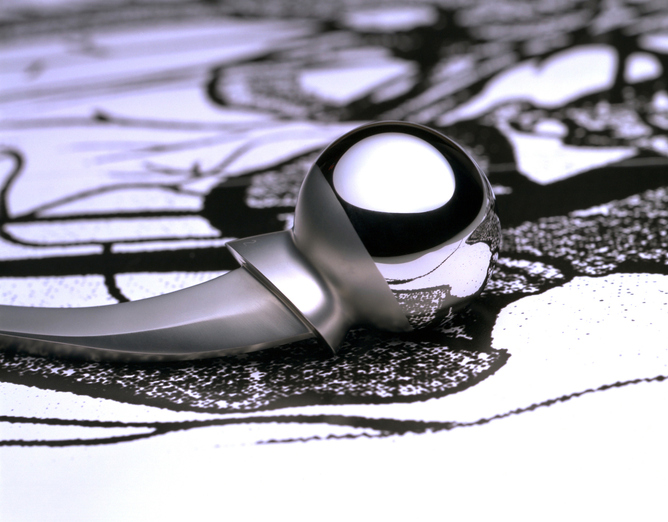
Getting medical equipment from the concept stage to market safely is no easy feat. That’s why it’s important to work with the right manufacturing process — one that helps you overcome the many obstacles that develop when building for such a critical industry.
Today, many product makers are turning to medical precision machining services to help guide a project start to finish. Here’s everything you need to know about this advanced type of contract medical device manufacturing:
- How the partnership works
- Its capabilities
- Certifications
- Design considerations
- Products that benefit from high-precision CNC machine work
How Does Medical Precision Machining Come Into Play?
High-precision CNC machining is a type of metal processing where the desired part specifications are programmed into a CNC machine, which then executes the program to produce the part. It’s used extensively for:
- Implantable devices
- Artificial joints
- Medical device components
- Surgical tools
- And many other applications
A typical CNC machine has 3 axes, but machines have been developed that have 5 axes or even more. The machine can handle additional geometry without touching the part, allowing for more complex shapes and designs.
The difference between “standard” CNC machining and precision machining is simply that the latter holds tolerances more closely.
Depending on your design and what you want to accomplish, you may want to consider working with a manufacturer with advanced CNC machines.
What Role Do Certs & Standards Play in Medical Device Manufacturing?
General manufacturing has certifications and standards that must be considered before producing a part and/or device for any market. Medical device production takes its own certifications to another level of strictness.
The ISO 9001 standard that encompasses so much of metal parts manufacturing is not enough for medical devices. The medical devices industry uses an additional layer of quality management, called ISO 13485. This standard focuses on managing risk, identifying issues that might pop up, and fixing those issues before they occur.
Are There Any Special Considerations?
Some medical devices require even more specialization than others. Implantable devices require an extreme level of cleanliness, while artificial joints need precision machining to operate as intended with minimal risk to the patient.
Keep in mind the tighter tolerances that medical precision machining offers. Then decide whether your project needs that added accuracy (and expense):
- The tolerance standard of a CNC machine is typically 0.003” to 0.005”
- The tolerance standard in precision machining can be as close as 0.0001”
How Medical Device Manufacturing Partnerships Work
Medical device machine shops use complex engineering and production methods. Still, the basic stages of choosing and working with medical machining companies are pretty simple.
Step #1: Find out if the company is the right match.
Medical contract manufacturing services vary wildly in what they offer. The OEM must make sure the contractor will have the right:
- Equipment
- Capabilities
- Quality standards
- Certifications
Once the match looks good on paper, the two can move forward with the introductory phase of ordering.
Step #2: Send over prints.
The OEM sends files of the part or parts it wants manufactured. The contract manufacturer will see if it’s comfortable machining those parts.
Step #3: Get a quote.
If the precision machining shop feels like they can manufacture the order successfully, it will give a quote — often after it produces samples. The samples show the shop’s capabilities to the OEM. It’s also a practice run to see what kind of work will be involved.
Step #4. Build a prototype.
There is less room for error in medical device components than most other industries. Most companies that offer medical contract manufacturing services will encourage you to build at least one prototype.
Prototyping allows the machining company to get the right tooling in place and get the machines running at speed. It’s always better to iron out issues on 1-10 components before starting a 10,000-part order whose failure would cost you a lot of time and money.
Not every precision machining company offers in-house prototyping, so don’t assume it’s part of the package.
Step #5: Refine the design.
Prototypes clue product makers in to the need for any design modifications to improve manufacturability and/or performance. Improving a design for manufacturability can lessen scrap and prevent lead time snags later in production.
A skilled manufacturer will actually work with OEM engineers on their design to get the best possible results. This level of collaboration is only available with certain high-level manufacturers, so ask before you buy.
Who Provides Precision CNC Machining Services?
Companies both large and small specialize in precision machining.
Size does not necessarily equal skill, and there are a handful of small manufacturers who maintain ISO 13485 certification to ensure they can work with medical device makers. A smaller company may actually be a better fit for your project — these contractors usually move more quickly and are more adaptable. A larger organization may be working on dozens of projects at once and may not have time to make you a priority or offer design help.
Location
Location of services is something take into account, but shouldn’t be the entire basis of a decision.
Many reputable medical manufacturers encourage on-site visits. These allow the OEM to see the …
- Machinery
- Capabilities
- People
… in person rather than through a telephone or email sales pitch. It’s best to be within 4-5 hours of a manufacturing partner so you can discuss and troubleshoot face-to-face as needed.
Other Questions About Medical Machining
If you’re considering entering the medical device market with a product that requires tight tolerances, you need precision machining services. If you have any other questions about medical precision machining, click here to ask.
